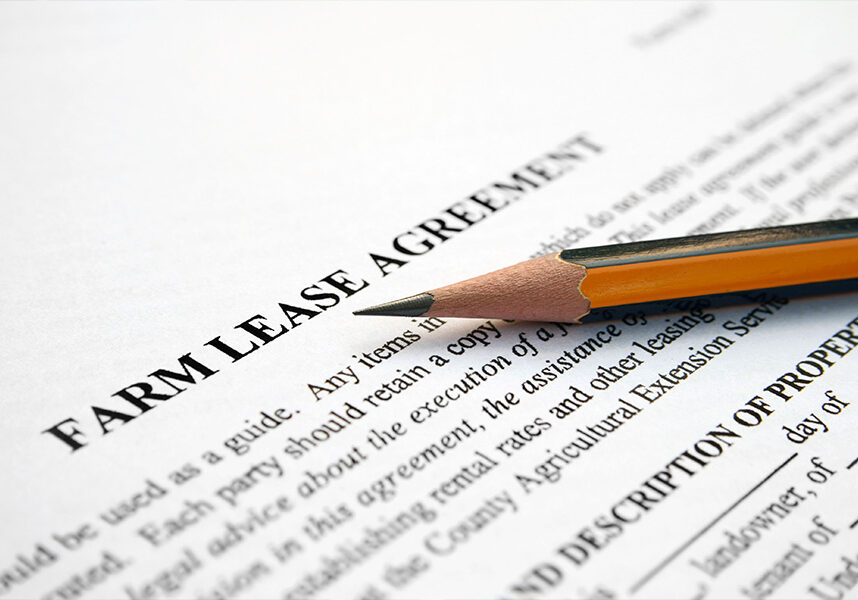
As the end of the year approaches, it’s a good time for landlords to review their farm leases. The Center for Agriculture and Food Systems at the Vermont Law School has developed an online Farmland Access Legal Toolkit to provide a resource for both landlords and farm tenants. The toolkit can be accessed at farmlandaccess.org.
Some of the resources on the website include leasing guides from farm organizations, a list of potential state-specific leasing issues that landlords and tenants should consult before signing a lease and a free online farm lease tool to help build a draft lease.
Another resource is a list of questions landlords and tenants should ask before signing a farm lease. Remember, it’s always a good idea to have a farm lease reviewed by an attorney who has experience working with farmers, especially if the lease is for multiple years and one or both of the interested parties are depending on the lease for income and/or housing.
- Are all the parties listed and accurately described with the correct individual and/or business names, correct addresses and up-to-date contact information?
- What property is being leased? Has the land been surveyed? Is a property map available and attached to the lease? Are the parties clear on property boundaries and uses?
- What is the procedure to follow if a party wishes to end the lease early? Is there a required notice period that is fair to both parties? Can the parties terminate for any reason or just in specific situations described in the lease?
- How will rent be calculated, and when will it be paid? What happens if rent, especial in cash rent situations, is late or unpaid?
- What activities are permitted on the property, and what are prohibited? This could include hunting or forms of agritourism, such as weddings or tours. Do such events, if permitted, require that additional rent be paid to the landlord? Are these activities allowed under local laws or ordinances?
- Which party is responsible for what repairs? What is considered routine maintenance vs. capital improvements? Who pays for what? Who owns capital improvements at the end of the lease term? Will the tenant be reimbursed for capital improvements and/or associated labor in any way?
- What kind of insurance is required, how much, and which parties will maintain it? Is there a disaster clause allowing the parties to terminate or modify the lease in case of a natural disaster (hailstorm, flood, etc.)?
- Is there an indemnification clause for both parties? An indemnification clause generally states that one or both parties agree to compensate the other for any loss stemming from their own actions or negligence.
- Is there a mediation or negotiation process that both parties agree to in the case of a dispute?
- Are there any stewardship requirements relating to land, water or soil? Are any agricultural practices prohibited (e.g., the use of synthetic fertilizers or pesticides)? Are any practices or certifications (e.g., USDA organic) required?
- What type of communication is required between the landlord and tenant over the course of the lease? Will there be annual meetings or inspections?
These are just some of the questions that should be considered when entering into a farm lease agreement. Learn more at farmlandaccess.org.












